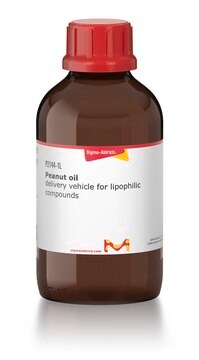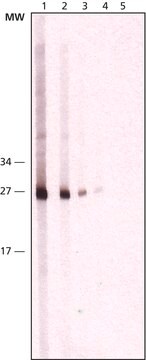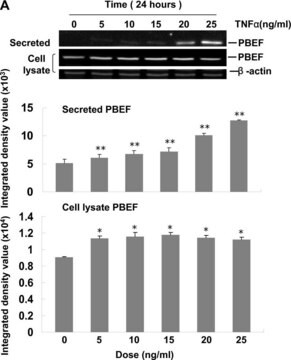C8267
Corn oil
delivery vehicle for fat-soluble compounds
Sinônimo(s):
Maize oil
Faça loginpara ver os preços organizacionais e de contrato
About This Item
Produtos recomendados
fonte biológica
maize
Formulário
liquid
cor
very faintly yellow to yellow
densidade
0.9 g/mL at 25 °C (lit.)
aplicação(ões)
life science and biopharma
sample preparation
grupo funcional
ester
tipo de lipídio
oils
Condições de expedição
ambient
temperatura de armazenamento
room temp
Procurando produtos similares? Visita Guia de comparação de produtos
Descrição geral
Corn oil, a highly unsaturated vegetable oil extracted from the germ of corn, is a versatile chemical compound extensively used in biochemical research. It can be used as a carrier/delivery vehicle for fat-soluble compounds, including toxins, and as a glidant in excipient research. Corn oil contains high levels of polyunsaturated fats, including omega-6 and omega-3 fatty acids in a ratio of 2:1. Additionally, when combined with surfactants and gel-forming polymers, it is used in formulation research for developing veterinary vaccines.
Aplicação
Corn oil has been used in research applications as delivery vehicle for fat-soluble compounds including toxins. It is also used in the delivery of tamoxifen (TAM) in mice, curcumin in rats and [3H]retinol in mice.
corn oil has been used in research applications as delivery vehicle for fat-soluble compounds including toxins.
Características e benefícios
- Can be used in Metabolomics, Biochemical and Formulation research
- High-quality compound suitable for multiple research applications
Outras notas
For additional information on our range of Biochemicals, please complete this form.
Código de classe de armazenamento
10 - Combustible liquids
Classe de risco de água (WGK)
awg
Ponto de fulgor (°F)
489.2 °F - open cup
Ponto de fulgor (°C)
254 °C - open cup
Equipamento de proteção individual
Eyeshields, Gloves
Escolha uma das versões mais recentes:
Já possui este produto?
Encontre a documentação dos produtos que você adquiriu recentemente na biblioteca de documentos.
Thomas C Nardelli et al.
Scientific reports, 7(1), 3862-3862 (2017-06-22)
Di(2-ethylhexyl) phthalate (DEHP) and other phthalates are ubiquitous environmental contaminants with endocrine disrupting properties. Two novel plasticizers, 1,4 butanediol dibenzoate (BDB) and dioctyl succinate (DOS), have been proposed as potential replacements. Both have desirable properties as plasticizers and minimal in
Rodica Petruta Bunaciu et al.
Journal of environmental pathology, toxicology and oncology : official organ of the International Society for Environmental Toxicology and Cancer, 30(4), 273-282 (2011-12-21)
We report the role of dietary glycine and the type of oil used as a vehicle in the hepatotoxicity of control rats and rats treated with 2,2',4,4',5,5'-hexachlorobiphenyl (PCB-153). In our first experiment, glycine or valine (as control) was fed in
Shery Park et al.
Stem cells and development, 25(23), 1801-1807 (2016-10-21)
Repair of calvarial bony defects remains challenging for craniofacial surgeons. Injury experiments on animal calvarial bones are widely used to study healing mechanisms and test tissue engineering approaches. Previously, we identified Gli1+ cells within the calvarial sutures as stem cells
Effects of Repeated Intraperitoneal Injection of Pharmaceutical-grade and Nonpharmaceutical-grade Corn Oil in Female C57BL/6J Mice
Hubbard JS, et al.
Journal of the American Association For Laboratory Animal Science, 56(6), 779-785 (2017)
Inhibition of hepatic sulfatase-2 In Vivo: A novel strategy to correct diabetic dyslipidemia
Hassing HC, et al.
Hepatology, 55(6), 1746-1753 (2012)
Nossa equipe de cientistas tem experiência em todas as áreas de pesquisa, incluindo Life Sciences, ciência de materiais, síntese química, cromatografia, química analítica e muitas outras.
Entre em contato com a assistência técnica





